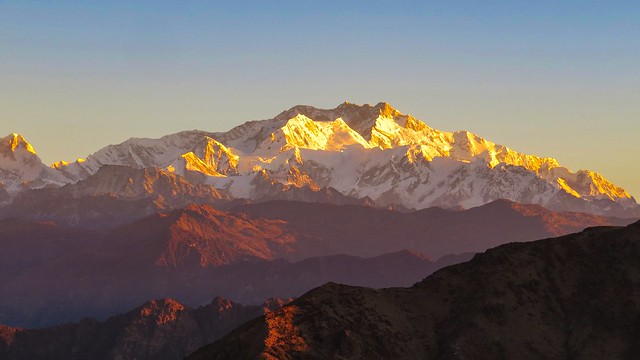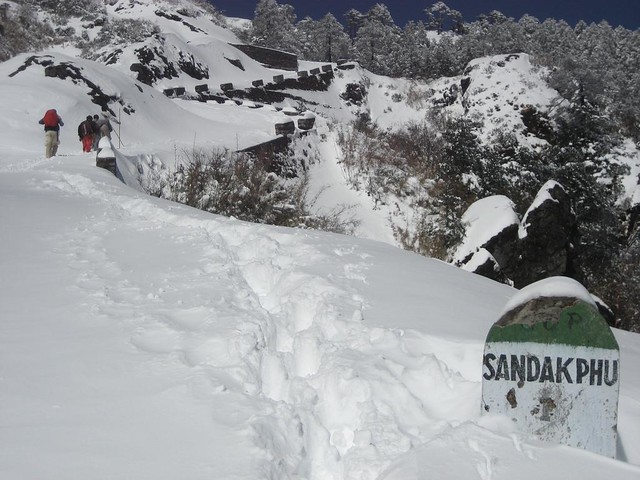Sandakphu Trek Tour
Sandakphu is not the endpoint of the wondrous trek that I had undertaken. The trek continues from Sandakphu for people who would want to continue on this blissful journey and reach the marvellous destination of Phalut. Phalut is about 21 km from Sandakphu. Located at a height of 11,811 ft, it is the second highest point in the Singalila Ridge.
This little town is located at the border of Nepal, Sikkim and West Bengal, and has a beautiful confluence of the cultures of all these regions.
While I had successfully conquered Sandakphu, my thirst and desire to continue forward was not done yet. My mind and heart were set on continuing on to Phalut, and only then commence my return. While I am not a seasoned trekker, I still knew that this would be something worth doing.
Sandakphu To Phalut
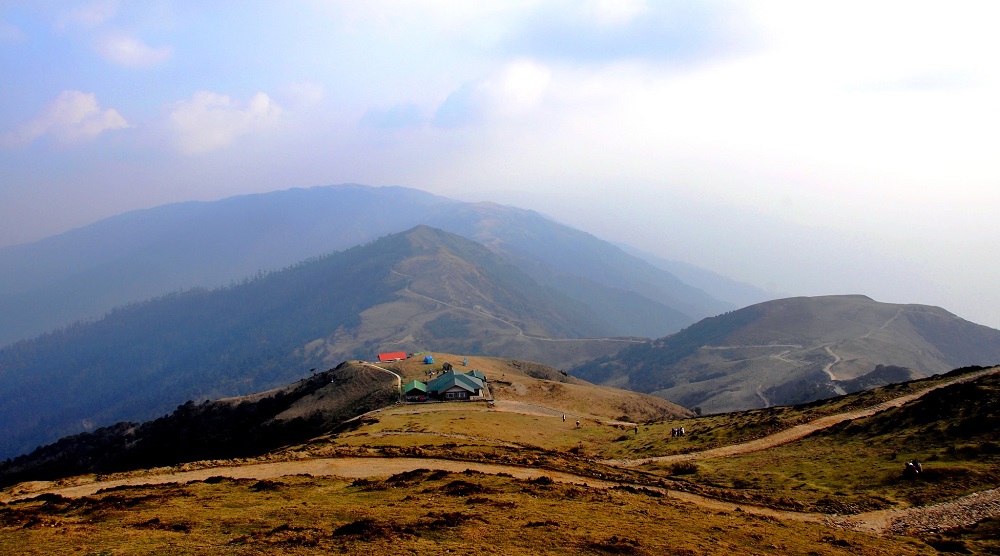
My trek started the day after I had reached Sandakphu. After a sumptuous breakfast, while gazing at some marvellous views of the clear blue sky, I decided to head on to Phalut.
As I started my walk, the very first view of the majestic Kanchenjunga lifted off my spirits, and whatever doubts I had about this journey were immediately lost into the thin air. The first stretch is relatively easier, as the same gravel path continues on to the same altitude for some time. This is the part of the journey where one can allow themselves to be a little slow, and slack off to enjoy the picturesque views that make up the environment. Throughout the whole path, you can see the Kanchenjunga peaking in the background, while the formidable Mt. Everest is just rising above the clouds behind you.
Sabargram
The first stop en route to Phalut comes at about 14 km from Sandakphu. A tiny village named Sabargram is located at an altitude of 11,624 ft. The view from here is marvellous. While, the view from Sandakphu till Sabargram itself is resplendent, but from this little hamlet it gets a notch higher. The town is filled with vast meadows of green grassy lands interspersed with red rhododendron plants and white Mongolias that add the perfect colour contrast to the green grass.
There isn’t a lot of living options here, but a little forest hut is more than adequate if you want to spend the night. This hut is owned by the first department and is well maintained.
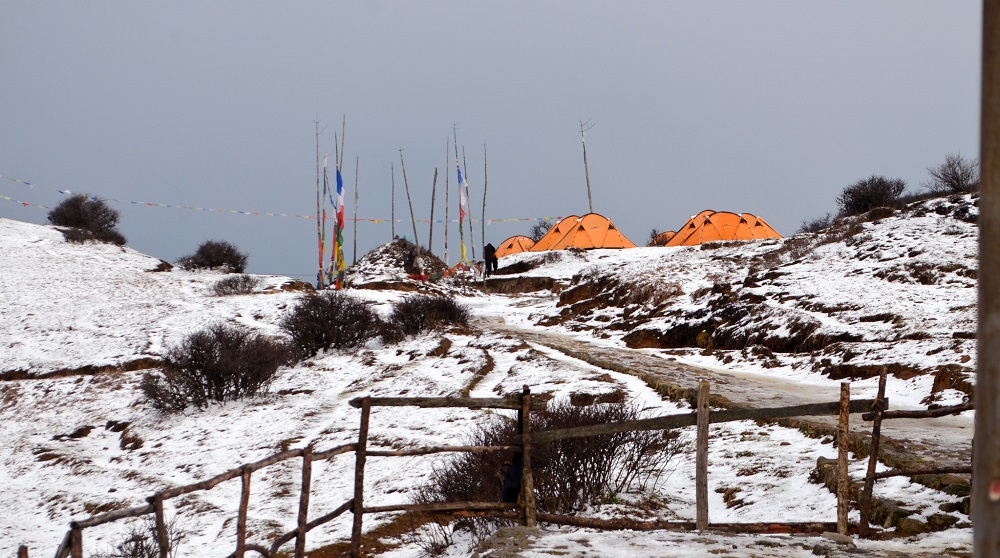
Many trekkers take shelter for a night here, before continuing on to the path of Phalut the next day. There are also many trekkers who camp at Sabargram. This experience itself is magnificent, as you lie on the green soft dewy grass while the starry sky is your ceiling.
Experienced trekkers usually do not halt and finish the break from Sabargram to Phalut in a day. But, my energy was diminishing from the five-hour trek from Sandakphu to Sabargram, as I decided to take shelter at the forest hut.
Phalut
The next day I woke up to a warm breakfast and a determination to finish my trek. With only 7 km to go, I quickly ate my breakfast and proceeded to finish the trek.
From Sabargram, I had to follow the train northwards, and take the left when the trail forks into different paths.
This part of the trek requires a little patience and experience, as the road takes a sudden curvy turn. The road becomes into a zig-zag pattern as the ascent to Phalut starts.
The trail is marked by the famous Trekkers Hut, which gave me the indication that Phalut is only about 25 minutes from here.
The last stretch was where I had to really push and motivate myself. While the ethereal surrounding and the quintessentially beautiful nature tried its best to keep me on track, the steep climb is certainly not easy.
Finally, after about two and a half hours, I found myself on top of the Phalut summit huffing as I saw the small flat grassy land that is far from any vegetation. I looked around and was amazed to find the marvellous sight of the long and vast stretch of snow-covered peaks.
From here you can see some of the highest peaks in the world, which includes Everest group, Kanchenjunga, Chamolhari, Pandim, Three Sisters and many more. The mountain ranges were standing proudly with the azure sky as their backdrop, whereas I was standing on the green grass admiring these white ranges hoping to conquer at least some of them.
Kanchenjunga is probably the closest from here and it appears absolutely huge and gorgeous from the summit of Phalut.
After staring for quite some time, I decided to make my way down and start my descent. While there are many routes that will take you back to where you started, including the same path that one took though Sandakphu, but the one path that really had my heart was Phalut to Gorkhey or Rammam. That was the path that I hadn’t experienced yet, so I decided to head for that.
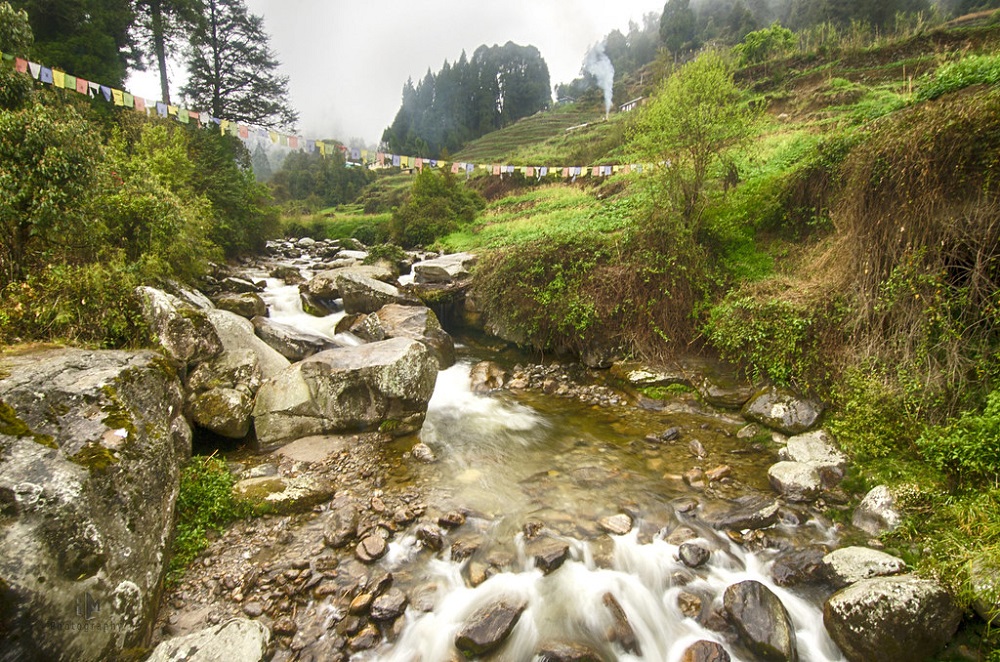
Descent
I started my downhill journey with a small path that leads through the forest area to Rammam. The first stop through this route is Gorkey. Before reaching Gorkey, the trek is marked by wonderful forest areas, filled with bamboos, pines and chestnut trees. This stunning path is the perfect way to refresh your senses and continue on. I was stunned by the fresh air and the breathtaking beauty of the forest, as I continued on to my journey.
There are several shortcuts available, all of which include crossing some water channels along the way. But I wanted to experience the whole trek in its purest form, and hence avoided the shortcuts.
As I walked on, I came across the elegant Rammam river, which also marks the border with Sikkim. What lies below it is a magnificent meadow of Samandeen. The beauty of this place has made it be dubbed as – second Switzerland.
Night Stay at Gorkhey (optional)
While I decided to go straight for the village of Samandeen, there is another option of staying over at the lazy hamlet of Gorkhey.
This little village is nestled about the huge pine trees, as refreshing mountain stream called Gorkhey Khola flows through the village.
Instead of staying the night, I made up my mind to take a quick detour and explore this village. The village is truly serene and pristine, and extremely scenic. There are only about 30 houses in this village and the locals are warm and hospitable. Many even offer the trekkers to stay the night at their huts.
What really attracts the trekkers to spend a whole night here, is the sheer natural beauty and the calmness of the place.
Samandeen Village
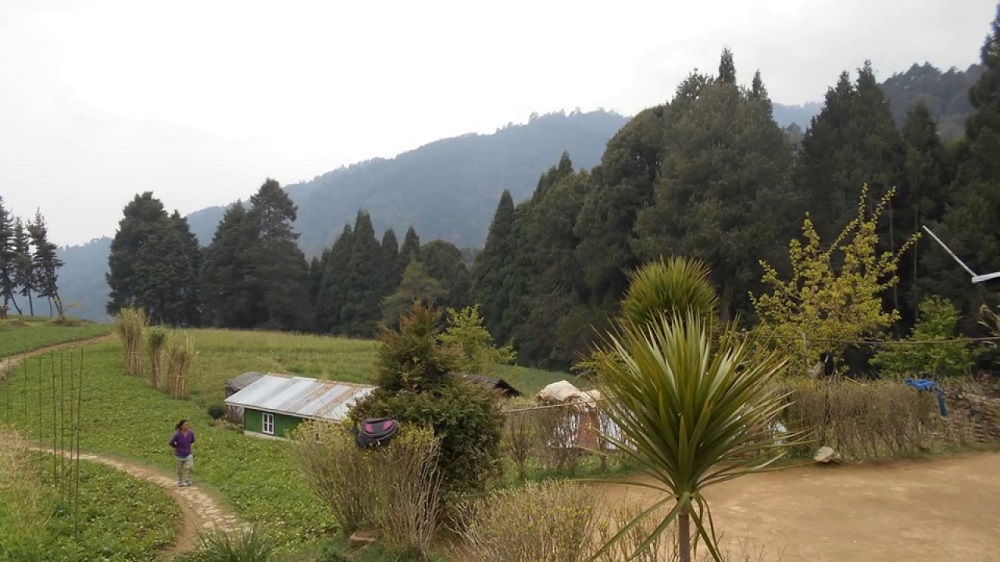
After exploring the Gorkhey village, I continued on to my path and reached the tiny village of Samandeen, which was visible from the higher altitude. This mystical village, which is almost wholly covered by vegetation and forest is located on a little plateau called the Lost Valley.
The place is as magical as its name. This village is easily the most picturesque places in the whole journey, and one can easily lose track of time by just staring and trying to etch everything to memory.
From Samandeen the route takes a magical turn towards the stream till the Rammam village.
I concluded my trek at Rimbik, which is about 19 km from Samandeen. The trek initially goes through a mystical forest here and it is a pretty easy walk. Eventually, it descends towards Rimbik, where I hopped onto a bus to Manebhanjan.

